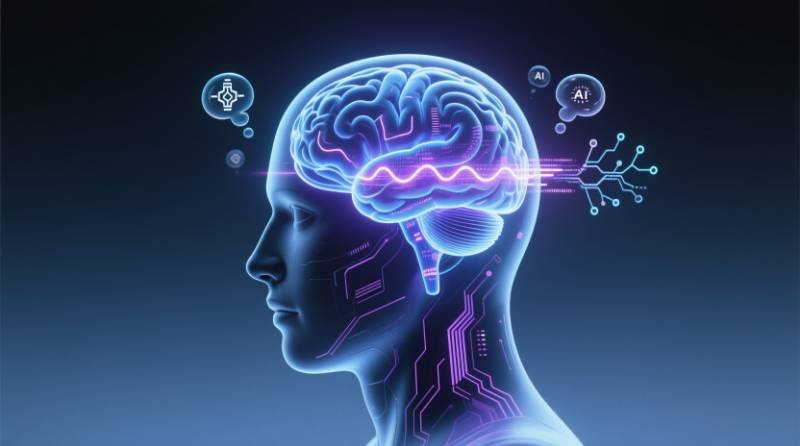Today, technology is growing fast. One of the biggest changes is how exocortex technologies could enhance human cognition. These tools act like an external brain. They help us think faster, remember more, and make better choices.
It’s clear: exocortex technologies could enhance human cognition by giving our brains extra power. They store information, support learning, and give real-time help. As a result, people can work smarter and solve problems with ease. Let’s explore how these advanced systems can shape our future.
What Is an Exocortex?
An exocortex is a digital system that supports our brain. It does not replace thinking. Instead, it helps the brain do more. For example, a phone reminds us of meetings. Similarly, an exocortex helps us store and use ideas quickly.
These systems use smart tools like:
- Brain-computer interfaces
- Cloud memory storage
- Artificial intelligence (AI)
- Wearable tech
In short, they create a strong link between humans and machines. That’s one way how exocortex technologies could enhance human cognition in real life.
How It Works
Exocortex tools work with both the brain and the internet. First, they collect data. Then, they give helpful results based on what you need.
Here’s how they function:
- Neural devices connect your brain to a digital system.
- Cloud systems store memory for quick recall.
- AI software helps with smart decisions.
- Wearables provide live updates and alerts.
Because of this, your brain gets support without stress. This is another reason why exocortex technologies could enhance human cognition in daily life.

Benefits of Exocortex Technologies
There are many reasons why people want these tools. Below are some key benefits that explain how exocortex technologies could enhance human cognition.
1. Improved Memory
We forget things all the time. With an exocortex, your memory has help. It stores facts, dates, and ideas for later. You can get this data back anytime you need it.
2. Real-Time Translation
Traveling or working with people who speak other languages? These systems offer live translation. This means smooth talks and no confusion.
3. Quick Decisions
Doctors, pilots, and other experts need fast answers. Exocortex systems give suggestions by using real-time data. This makes their jobs safer and faster.
4. Smarter Learning
Students and workers learn at different speeds. These systems adjust content to your style. This helps you understand faster and retain more knowledge.
5. Less Mental Stress
Too much info makes people tired. Exocortex tools filter data. They show only what matters. So, your brain can relax and stay sharp.
Where They Help Most
These smart tools work in many fields. Let’s look at how exocortex technologies could enhance human cognition in key areas:
– Healthcare
Doctors use smart glasses or screens to see a patient’s history during exams. This saves time and reduces mistakes. AI can even suggest treatments in seconds.
– Education
In schools, students use wearable tools or digital apps that track how they learn. Lessons can then match their needs. This helps students grow faster.
– Military
Soldiers on missions can get real-time updates. Maps, weather alerts, and safety signals show up in their vision. This keeps them alert and safe.
– Offices
Busy teams use smart systems to manage emails, meetings, and deadlines. Everything stays organized. That boosts focus and saves hours.
Are There Risks?
Yes, there are also concerns. It’s important to look at both the good and the bad.
- Privacy Issues: These tools collect data. Companies must protect that information.
- Too Much Dependence: If we rely too much, we may forget how to think on our own.
- Fair Access: Will everyone get this tech? Or only those with money?
Even with these worries, the benefits are strong. But, we must use these tools wisely.
The Road Ahead
In the future, exocortex technologies could enhance human cognition in even bigger ways. Some researchers want to link the brain to the cloud. Others are working on AI that learns with you.
We may soon have:
- Memory backups
- Thought sharing between people
- Tools that help you learn skills in minutes
It may sound like science fiction. Yet, many parts are already real. Big tech companies and labs are building them now.
Conclusion
In summary, exocortex technologies could enhance human cognition by giving us better memory, faster thinking, and smarter tools. These systems support learning, reduce stress, and help with daily tasks.
As we move forward, people and machines will work closer than ever. With care and clear rules, these tools could change how we think, learn, and live.
It’s time to get ready. The future of the brain is not just inside the head — it’s all around us.




